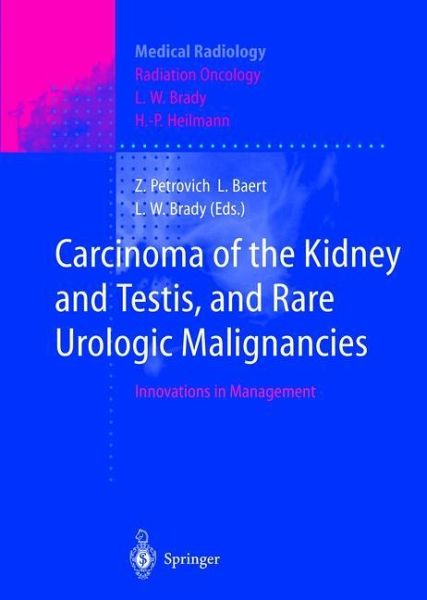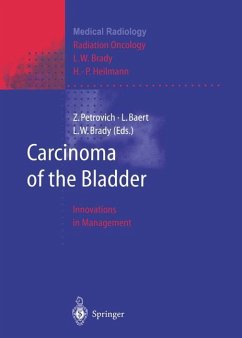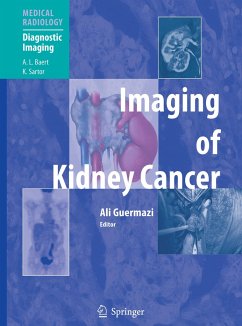
Carcinoma of the Kidney and Testis, and Rare Urologic Malignancies
Innovations in Management
Herausgegeben: Petrovich, Zbigniew; Baert, Luc; Brady, Luther W
Versandkostenfrei!
Versandfertig in 6-10 Tagen
77,99 €
inkl. MwSt.

PAYBACK Punkte
39 °P sammeln!
In the United States in 1997, 28800 new cases of malignant tumors of the kidney and renal pelvis were diagnosed along with 2100 new cases of malignant tumors of the ureter and other urinary organs, 7200 primary malignant tumors of the testis, and 1300 primary malignant tumors of the penis and other genital organs. In large measure, surgery is the treatment of choice for these tumors, but radiation therapy is in creasingly recognized as having significant and important curative and palliative bene fits in each of these tumor sites. Surgery is the standard form of treatment for non metastatic re...
In the United States in 1997, 28800 new cases of malignant tumors of the kidney and renal pelvis were diagnosed along with 2100 new cases of malignant tumors of the ureter and other urinary organs, 7200 primary malignant tumors of the testis, and 1300 primary malignant tumors of the penis and other genital organs. In large measure, surgery is the treatment of choice for these tumors, but radiation therapy is in creasingly recognized as having significant and important curative and palliative bene fits in each of these tumor sites. Surgery is the standard form of treatment for non metastatic renal cell carcinomas as well as for malignancies of the renal pelvis and ureter, with radical nephrectomy and radical uretectomy being employed. However, postoperative radiation therapy is of value for those patients who demonstrate evi dence of residual tumor following surgery, transection of tumor during surgery, or positive regional lymph node drainage. As regards the rare tumors that involve the female urethra, surgical resection is appropriate for those that are limited and local in character and amenable to partial ureterectomy. With tumors that are more advanced in character, however, local recurrence and lymphatic dissemination are significant problems, and treatmentby radiation therapy programs alone yield satisfactory control rates as well as limited recurrences and long-term survivors. For primary tumors involving the testis, the major approach to nonseminomatous tumors is surgical resection with postsurgical systemic chemotherapy.












